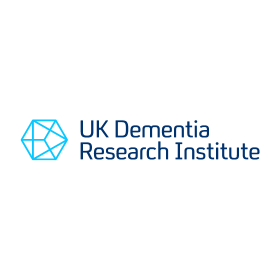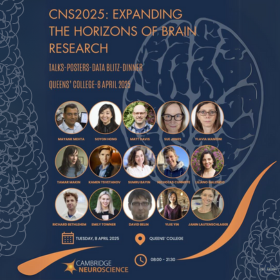All the events here are relevant to people working in dementia research. If you would like to add your own you can submit an event

- This event has passed.
Enabling dementia research using UK Biobank
29/06/2023 @ 1:00 pm - 5:00 pm

The UK DRI welcomes you to a special webinar exploring opportunities to harness the UK Biobank’s data resources for your research.
UK Biobank is a 500,000-person prospective longitudinal population-based resource harbouring health records, genetic information and a wealth of fluid biomarker and imaging data, as well as measures of physical health, cognitive and sensory functions. It is uniquely rich amongst open, large population data resources for the extent of the subject phenotyping, which includes in depth, research quality multi-organ clinical imaging currently on more than 60,000 participants
Currently, participants are ~46-85 years old with 15 years follow-up. The numbers of incident dementias in the cohort are rising rapidly from ~5000 in 2020 to 14,000 expected by 2030. Thus, UK Biobank ‘Big Data’ is a prime resource for dementia research, especially to understand risk factors, early disease stages and progression.
In this Webinar, we will highlight possible avenues of dementia research using UK Biobank data. We will discuss how the resource was designed, how it can be accessed and exciting ways that it is being developed to increase its future utility. A diverse group of presenters will showcase their work with UK Biobank, to enable mechanistic gene discovery, risk prediction, early diagnosis and outcomes assessment in dementia research.
Register to Attend
Programme
- Dr Eugene Duff (UK DRI at Imperial): Does SARS-CoV-2 infection trigger neurodegenerative pathology?
- Dr Cynthia Sandor (UK DRI at Cardiff): Wearable devices can identify Parkinson’s disease up to 7 years before clinical diagnosis
- Dr Abbas Deghan (UK DRI at Imperial): Discovery of novel causal genes shared between Alzheimer’s disease and cardiovascular disease
- Professor Valentina Escott-Price (UK DRI): Improving the prediction of Alzheimer’s disease
- Professor Naomi Allen (UK Biobank): Principles of design for UK Biobank and implications for its use
- Professor David Llewellyn (University of Exeter): TBC
Speaker bios
Dr Eugene Duff (UK DRI at Imperial)
Eugene Duff’s research focuses on analytic and computational challenges in resolving spatial and temporal properties of brain structure and function. He has worked extensively in neuroimaging, and at the UK DRI at Imperial College focuses on a variety of single cell and spatial transcriptomic techniques that can reveal genomic signatures of the emergence of dementia. His interests include inference on complex neurobiological datasets, multi-study integration and the development of reproducible analysis pipelines.
Prof Naomi Allen (UK Biobank)
Naomi Allen is a Professor in Epidemiology, based in the Nuffield Department of Population Health, University of Oxford. She joined UK Biobank as Senior Epidemiologist in 2011, and became Chief Scientist in 2019, where she is responsible for co-ordinating the future scientific strategy of the resource, including following-up participants’ health through linkage to routine health-related datasets and web-based questionnaires. Her research interest is largely in the role of diet, obesity and circulating biomarkers in cancer development.
Dr Cynthia Sandor (UK DRI at Cardiff)
Cynthia Sandor is a Sêr Cymru II Fellow and UK DRI Emerging Leader at the UK DRI at Cardiff, sponsored by Group Leader Prof Caleb Webber. Dr Sandor’s current research is aiming to elucidate the molecular mechanisms underlying disease severity and progression in Parkinson’s disease, using a mainly computational strategy. Working with different data types and multiple clinical datasets, her team develop statistical/machine learning approaches to understand and predict the clinical presentation and progression of disease in people living with Parkinson’s.
Prof Valentina Escott-Price (UK DRI)
Valentina Escott-Price is a Professor in Biostatistics and Bioinformatics at the UK Dementia Research Institute and the division of Neuroscience and mental health at Cardiff University. She uses computational approaches to make sense of increasingly large datasets generated by genetic, clinical and laboratory studies into dementia. She is aiming to identify key drug targets and to redefine how Alzheimer’s disease and other dementias are diagnosed in the future. Valentina leads DPUK Work Package 27a in the Experimental Medicine Incubator’s Neuroimmunology theme: Polygenic risk and inflammatory pathways.
Dr Abbas Dehghan (UK DRI at Imperial)
Abbas Dehghan MD PhD FESCis a medical doctor and an epidemiologist. In 2016, he joined the Department of Epidemiology and Biostatistics at Imperial College London as a reader in cardiometabolic disorders. Since January 2020, Dr Dehghan is the director of postgraduate research at the school of public health. Dr Dehghan is a member of the steering committee of the Cohorts for Heart and Aging Research in Genomic Epidemiology (CHARGE) Consortium and has led or been involved in many genome-wide association (GWAS) studies. Dr Dehghan is working on the genetics of omics, in particular metabolomics, and applying Mendelian Randomisation approach to investigate causal determinants of complex traits and diseases including cardiometabolic disorders, dementia and cancers.
Chairs
Professor Paul Matthews (UK DRI at Imperial)
Paul Matthews, OBE, DPhil, FRCP, FMedSci is the Edmond and Lily Safra Professor of Translational Neuroscience and Therapeutics, Head of the Department of Brain Sciences and Centre Director of the UK Dementia Research Institute at Imperial College London and is Chair of the UK MRC Neurosciences and Mental Health Board. Since 2009, he has been on the Steering Committee of UK Biobank and chairs the Imaging Enhancement Working Group, which has supported UK Biobank for creating the world’s largest imaging epidemiological dataset.
Professor Ioanna Tzoulaki
Ioanna Tzoulaki is Professor of Chronic Disease Epidemiology at the School of Public Health at Imperial College London. Her research focuses on molecular epidemiology, population health and translational biomedical research. She is leading multidisciplinary research on exploring disease pathways through the integration of high-resolution molecular data (e.g., genomics and metabolomics), dense phenotyping as well as multiple linkages to electronic health records. She has led large consortia funded by the EC and US NIH as PI and contributed as expert and advisor in several organisms including the European Food and Safety Authority. She has considerable experience in the design, conduct and management of large, international biobanking efforts and has been a member and secretariat of the UK Biobank Enhancement Subgroup which designed the enhanced phenotyping of UK Biobank 500,000 participants.




